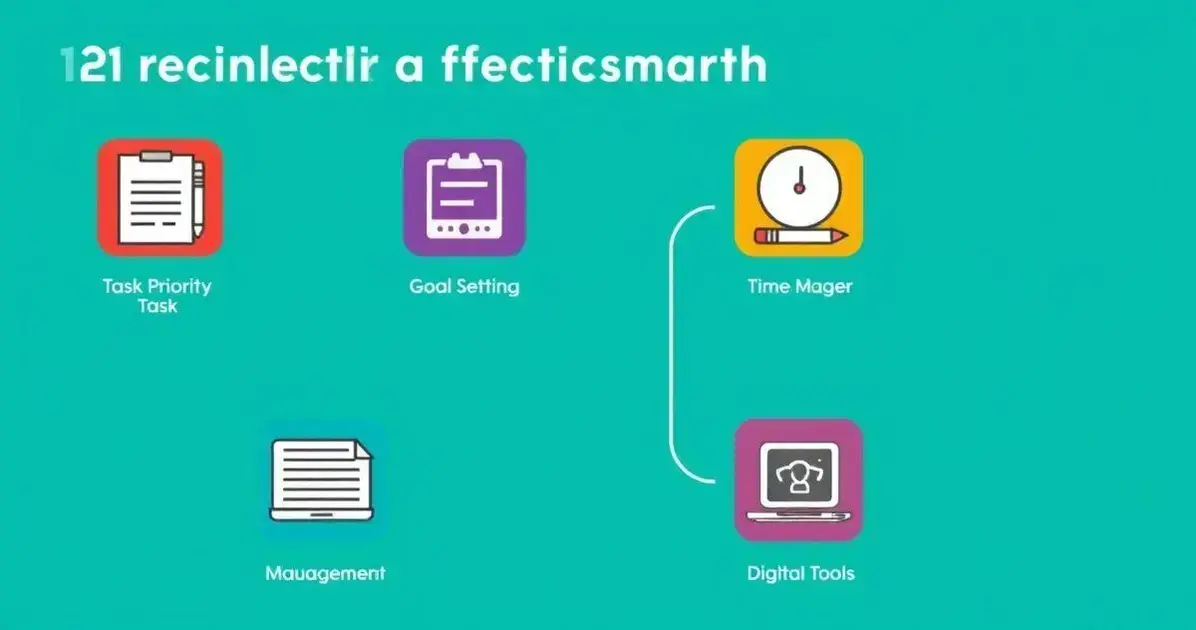Announcements
Techniques Smart Work are the real game-changer for anyone looking to achieve more with less effort. Instead of drowning in endless tasks, the goal is to be strategic and channel your energy into what truly matters.
The idea is simple: it’s not about working harder all the time, but about working smarter. That means managing your time well, using the right tools, and staying focused on what actually moves the needle.
If you’re ready to shift gears and make your routine lighter and more productive, keep reading — there’s a lot of practical insight coming your way.
Announcements
Understanding Smart Work Techniques
Understanding Smart Work Techniques involves knowing how to maximize efficiency while minimizing effort. Smart work is not just about getting things done; it’s about getting things done effectively.
One of the key concepts of smart work is prioritization. This means recognizing which tasks are the most important and focusing on those first. By prioritizing tasks, you can allocate your time and resources most effectively.
Announcements
Utilizing Technology
In today’s digital age, leveraging technology is essential for smart work. Tools like task management software and collaboration platforms allow you to streamline processes. These technologies enable you to communicate more efficiently and stay organized.
Setting Clear Goals
Another important aspect of smart work is setting clear, achievable goals. This not only provides direction but also motivates you to focus your efforts. When goals are specific and measurable, it becomes easier to track progress and make adjustments as needed.
Work-Life Balance
Smart work techniques also emphasize the significance of work-life balance. Ensuring you take breaks, manage your energy, and maintain a healthy lifestyle is crucial. When you are well-rested and energized, your productivity naturally increases.
Reflection and Improvement
Regularly reflecting on your work processes and outcomes can help you identify areas for improvement. Evaluating what works and what doesn’t enables you to adapt your smart work techniques to maximize effectiveness.
Benefits of Smart Working
Benefits of Smart Working are numerous and can significantly improve your overall productivity and job satisfaction. Embracing smart working methods leads to better efficiency and a more balanced lifestyle.
One major benefit is increased productivity. By working smarter, you can accomplish more tasks in less time. This is because smart work focuses on efficiency rather than just sheer volume.
Enhanced Flexibility
Smart working relationships often come with enhanced flexibility. This means that you can choose when and where to work, which can lead to higher morale and job satisfaction.
Reduced Stress Levels
By implementing effective smart work techniques, you can reduce stress. Prioritizing tasks and effectively managing time can lead to fewer last-minute rushes and a calmer work environment.
Better Focus
Smart working encourages you to eliminate distractions. When you concentrate on your most important tasks, you naturally produce higher quality work without interruptions.
Work-Life Balance
Finally, smart working contributes to a healthier work-life balance. By utilizing techniques that streamline processes, you can free up valuable time for personal activities and family, leading to a happier life overall.
Key Strategies for Effective Smart Work

Key Strategies for Effective Smart Work focus on enhancing productivity while reducing unnecessary effort. To work efficiently, consider these strategies:
1. Prioritize Your Tasks
Start by identifying the most important tasks. Use tools like the Eisenhower Matrix to help you distinguish between urgent and non-urgent activities. This allows you to focus on what truly matters.
2. Set Specific Goals
Clearly defined goals offer a roadmap for what you need to achieve. Set SMART goals—Specific, Measurable, Achievable, Relevant, and Time-bound—to ensure clarity and focus.
3. Utilize Time Management Techniques
Implement techniques like the Pomodoro Technique, where you work for 25 minutes and then take a 5-minute break. This structure helps maintain focus while avoiding burnout.
4. Embrace Digital Tools
Leverage applications that foster collaboration and organization. Tools like Trello, Asana, and Slack can help streamline communication and task management, resulting in smoother workflows.
5. Reflect and Adjust
Regularly assess your work habits and processes. Reflecting on what works and what doesn’t allows you to make necessary adjustments and continuously improve your approach to smart work.
Common Mistakes in Smart Work
Common Mistakes in Smart Work can hinder your productivity and effectiveness. Recognizing these mistakes is vital for improvement. Here are some frequent pitfalls to avoid:
1. Ignoring Prioritization
One major mistake is failing to prioritize tasks. When everything feels urgent, it can lead to chaos. Always identify and focus on high-impact tasks first.
2. Overcommitting
Taking on too many responsibilities is another common error. Overcommitting not only spreads you thin but also leads to burnout. Learn to say no when necessary.
3. Neglecting Breaks
Many people forget to take breaks while working. This can decrease focus and overall performance. Short, regular breaks refresh your mind and keep energy levels up.
4. Avoiding Delegation
Some individuals struggle with delegating tasks. Micromanaging can drain your time and resources. Delegate tasks to others when possible, to enhance efficiency.
5. Lack of Reflection
Finally, failing to reflect on your work habits can stunt growth. Regularly review what strategies work and what needs change. This helps in continuously refining your smart work techniques.
Adapting Smart Work Techniques in Daily Life
Adapting Smart Work Techniques in Daily Life is key to enhancing your productivity both at work and at home. Here are effective ways to incorporate these techniques into your routine:
1. Create a Daily Task List
Start each day by writing down a task list. Identify the top three tasks that need your attention. This simple act can provide clarity and focus for your day.
2. Use Time Blocks
Consider using time blocks to structure your day. Allocate specific time slots for different activities. This helps prevent multitasking and keeps your focus on one task at a time.
3. Set Boundaries
Incorporate boundaries in your work and personal life. Designate specific work hours and stick to them. This separation allows for better work-life balance and increases productivity.
4. Leverage Technology
Make use of productivity apps that help you stay organized. Tools like calendars, reminders, and checklists can streamline your tasks and minimize distractions.
5. Review and Adjust Regularly
Finally, take time each week to review your progress. Assess what smart work techniques are working and what could be improved. Adjust your strategies based on these reflections to continually enhance your efficiency.
FAQ – Frequently Asked Questions about Techniques Smart Work
What are smart work techniques?
Smart work techniques focus on maximizing productivity and efficiency while minimizing effort, emphasizing the importance of prioritization and organization.
How can I prioritize my tasks effectively?
You can prioritize tasks by using methods like the Eisenhower Matrix, which helps identify urgent and important tasks, ensuring you focus on what truly matters.
What tools can help me with smart work?
Various tools such as Trello, Asana, and Slack can enhance collaboration, manage tasks, and streamline communication, allowing for more effective smart work strategies.
What are common mistakes to avoid in smart working?
Common mistakes include ignoring task prioritization, overcommitting, neglecting breaks, avoiding delegation, and failing to regularly reflect on work processes.
How can I adapt smart work techniques to my daily life?
Adapting techniques smart work can be done by creating a daily task list, using time blocks for task management, and regularly reviewing your progress to make adjustments.
What is the importance of work-life balance in smart work?
Maintaining work-life balance is essential in smart work to prevent burnout, enhance productivity, and improve overall job satisfaction.







